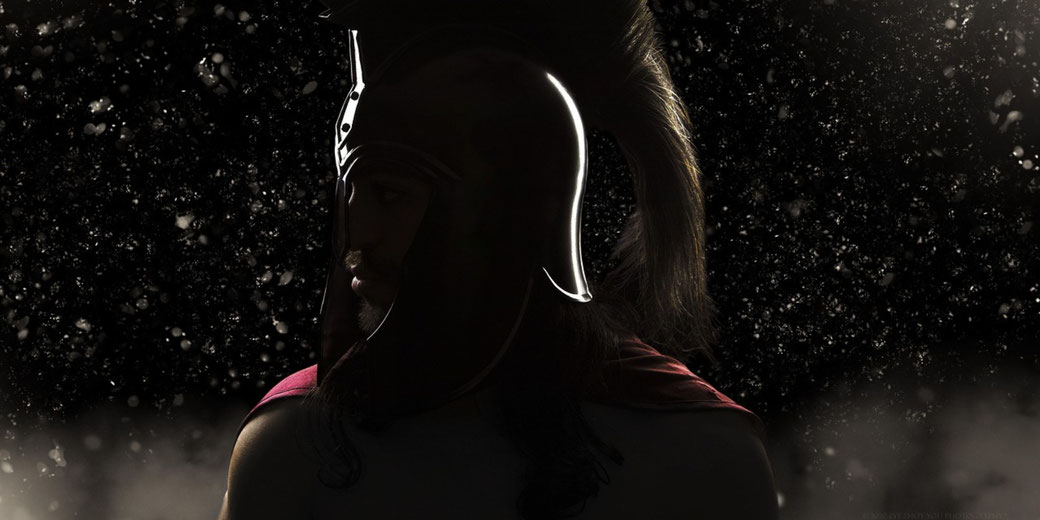The mysterious Carneia Festival: The religious celebration that defined Ancient Sparta

The Carneia was one of the most significant and sacred festivals in ancient Sparta, a city-state known for its military prowess and austere lifestyle.
The festival was dedicated to Apollo Carneius, a deity associated with prophecy, music, intellectual pursuits, and healing.
The name 'Carneia' is believed to have been derived from the Doric word 'karne,' meaning 'ram,' indicating a possible connection to pastoral and agricultural rituals.
The ancient origins of the festival
The origins of the Carneia are shrouded in the mists of time, but it is generally believed to have been established in the 7th century BCE.
The festival was celebrated in all Dorian states, but it was in Sparta where it held the most significant cultural and religious importance.
The Carneia was held annually in the month of Metageitnion, which corresponds to late August in the modern Gregorian calendar.
The Carneia was not only a religious festival but also a cultural event that brought the Spartan community together.
It was a time when the Spartans, known for their militaristic and disciplined lifestyle, could engage in music, dance, and other forms of artistic expression.
The festival was also an opportunity for Spartans to reaffirm their communal bonds and shared identity.

The rites and rituals of the Carneia
The Carneia lasted for nine days, and its rituals were complex and multifaceted. The festival began with the selection of a group of men, known as the 'staphylodromoi' or 'grape-cluster runners.'
These men, who were chosen for their moral and physical purity, would chase a sacrificial lamb around an altar.
If they caught the lamb, it was sacrificed to Apollo; if not, the lamb was released.
The festival also included a series of choral dances and musical competitions, reflecting Apollo's patronage of the arts.
These performances were not merely entertainment but were imbued with religious and symbolic significance.
They were seen as a form of communication with the divine, a way of seeking Apollo's favor and guidance.
One of the most distinctive features of the Carneia was the 'eirenexenia,' a ritual meal shared by the participants.
This communal feast, which included the meat of the sacrificed animals, was a symbol of unity and fellowship among the Spartans.
How important was it to the Spartans?
The Carneia had a profound impact on Spartan society and its military activities. According to the historian Thucydides, the festival's observance was so important that it even influenced the timing of military campaigns.
The Spartans were reluctant to engage in warfare during the Carneia, believing it would displease Apollo.
The influence of the Carneia extended beyond Sparta and the Dorian states. The festival was also celebrated in Cyrene, a Greek colony in North Africa, and its rituals influenced the development of other festivals in the Greek world.
When the Carneia stopped the Spartans going to war
According to the ancient historian Herodotus, when the Persians invaded Greece, the Spartans were observing the Carneia, and the Olympic Games were also taking place.
These were two of the most sacred events in the Greek religious calendar, and it was considered sacrilegious to interrupt them for any reason, even in the face of an imminent Persian invasion.
When the city of Athens sent an urgent request for assistance to Sparta before the Battle of Marathon in 490 BCE, the Spartan army was delayed because of the Carneia festival.
The Spartan leaders, bound by religious law, decided they could not send their troops to battle until the full moon had risen, marking the end of the Carneia.
Similarly, during the Battle of Thermopylae in 480 BCE, the Spartans were again observing the Carneia.
They sent only a small force of 300 warriors, led by King Leonidas, to aid the other Greek city-states while the main Spartan army completed the religious festival.
This delay in full Spartan military engagement was a significant factor in the initial Greek strategy and the unfolding of the Battle of Thermopylae.
What do you need help with?
Download ready-to-use digital learning resources
Copyright © History Skills 2014-2025.
Contact via email
With the exception of links to external sites, some historical sources and extracts from specific publications, all content on this website is copyrighted by History Skills. This content may not be copied, republished or redistributed without written permission from the website creator. Please use the Contact page to obtain relevant permission.





